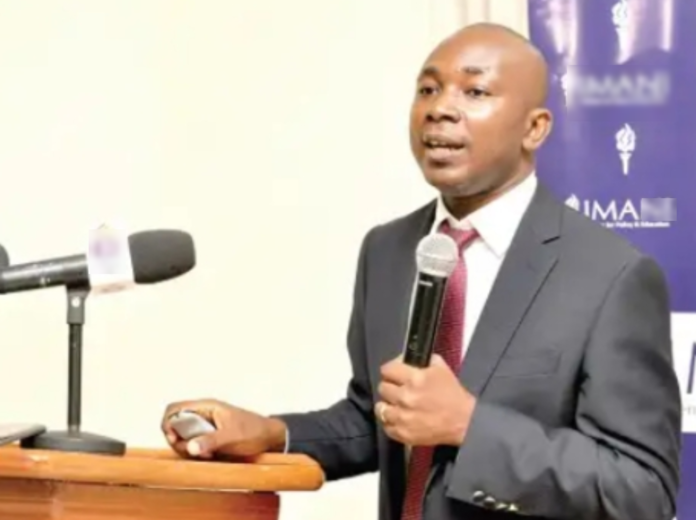A professor of Economics and Finance at the University of Ghana Business School, Prof Godfred Bokpin has revealed that the state loses more than $2.4 billion annually to illegal mining (galamsey).
He made this claim on the Super Morning Show on Thursday, October 3, while highlighting the financial implications of galamsey on the country.
Bokpin noted that, Ghana is headed for a serious national crisis if galamsey is not addressed immediately, due to the state’s inability to recover revenue lost to illegal mining activities.
“I’m looking at irresponsible mining from different angles, so we are not benefiting optimally. The revenue losses, in total, amount to over $2.4 billion annually. That is the fiscal loss to the state. In fact, that’s far more than what we are getting from the IMF,” he stated.
He predicted that the nation will not be able to cope with the environmental and health effects of illegal mining, as the inability to retrieve lost revenue would hinder corrective measures.
“So, the fiscal losses are huge. In other words, we are not getting the revenue from there, even if we want to deploy it to mitigate the side effects. When we talk about illegal mining, smuggling, and the associated losses, we are losing massively. We are not benefiting optimally from the resources God has endowed us with,” he added.
In a tone of urgency, Martin Kpebu warned that Ghana’s economy cannot be developed or recovered if the environment continues to be degraded.
He further argued that those who claim a ban on galamsey would lead to job and revenue losses are mistaken, as mining, despite its contribution to GDP, has not significantly impacted employment, reduced poverty, or narrowed social inequality.
“Between 2011 and 2022, nearly 20% of our GDP growth came from mining and quarrying, but job creation hasn’t responded positively, nor has it contributed to poverty reduction or reduced inequality,” Prof Bokpin explained.
He also said that while there are responsible ways to conduct mining, a number of irresponsible miners have been granted permits to operate, adding to the environmental degradation.
“There is a responsible way to do mining. However, the path we have chosen, particularly with artisanal and illegal mining, is not sustainable. Let me digress—do you know that ten years ago, preliminary data showed many small businesses engaged in illegal mining? Many now have permits, but even with permits, some are still engaging in irresponsible mining,” he revealed.
Bokpin warned that if galamsey is not curbed soon, it could destroy Ghana’s economy. He stressed that if this happens, it would not be due to a lack of data, but rather as a result of poor decisions by the nation.
“If we perish, I believe it will be because of the path we have chosen. It would be due to a choice—a decision made by a country of 37 million people.”
He concluded by emphasizing the fundamental connection between the environment and the economy.
“There can never be an economy without the environment. Development, recovery, and economic sustainability are impossible without ecosystem sustainability. This does not happen in any serious country,” he said.
ALSO READ:

